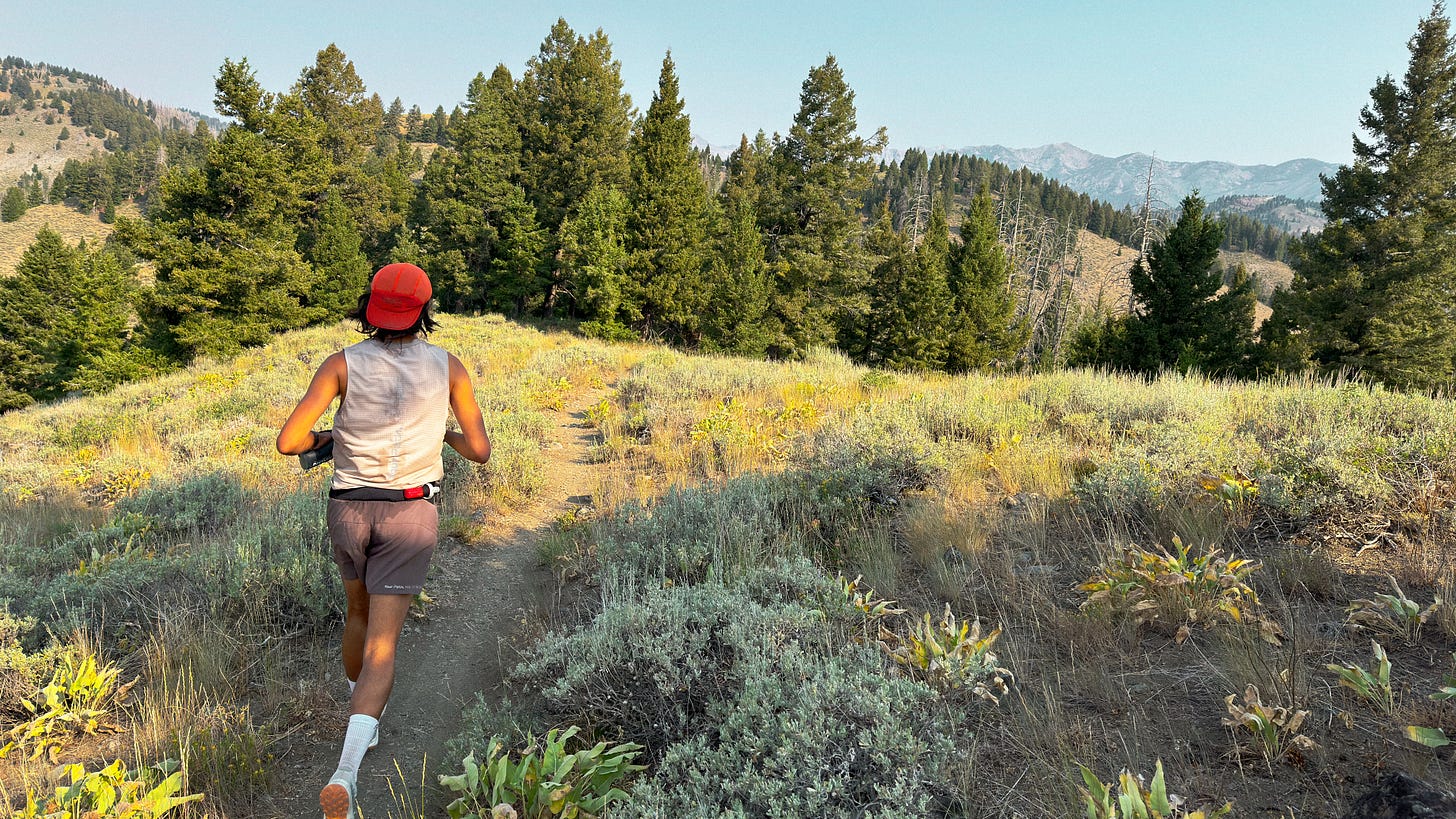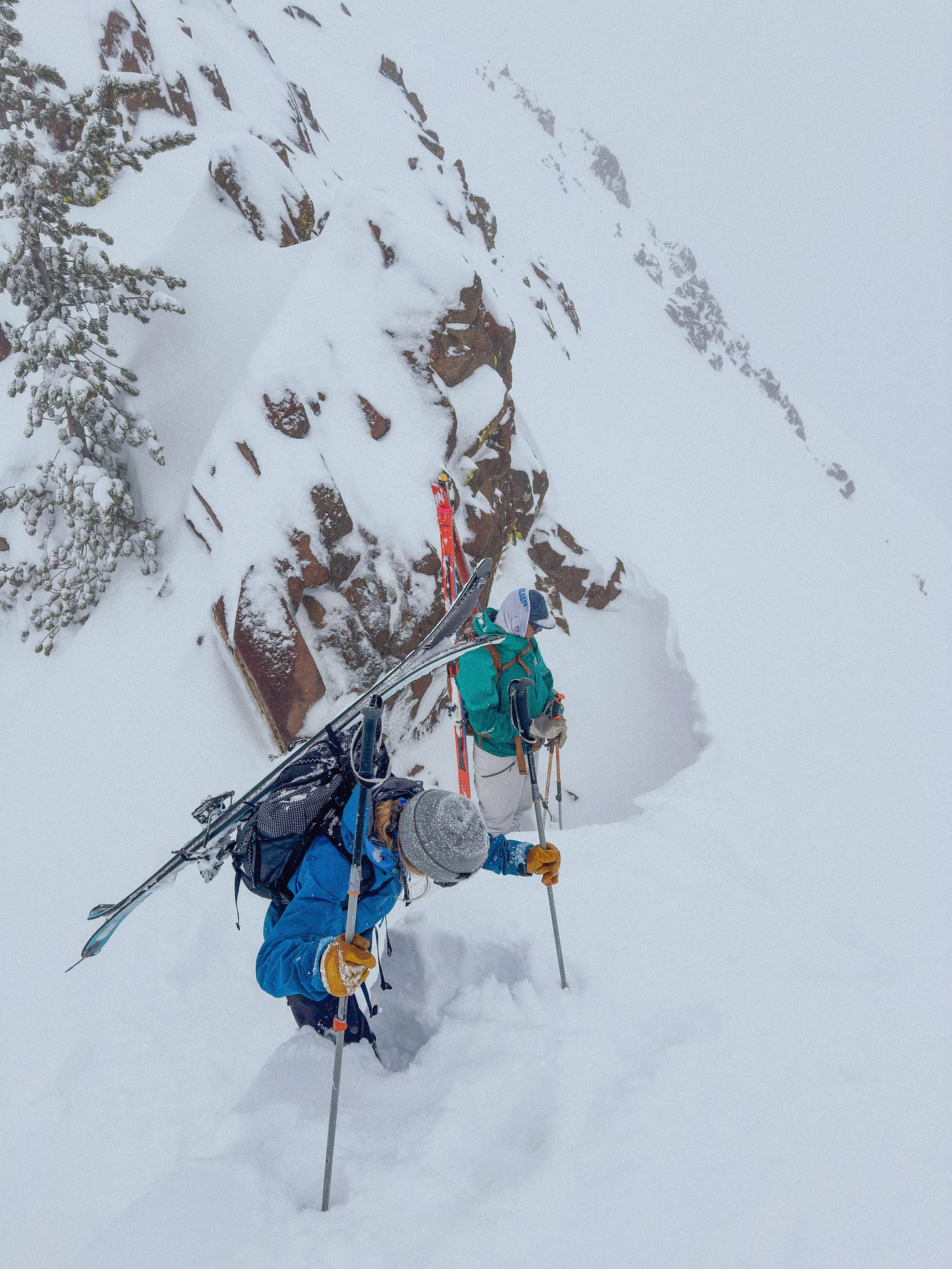David Epstein’s book Range challenges the traditional idea that specialization (in both career and sport) is the key to thriving in today’s world. Epstein argues that developing range and becoming more generalist creates adaptability and diversity in skill and experience.
While certainly not always cut and dry, I believe in this concept for the majority of athletes. Sure, the Tadej Pogacars of the world are highly specialized in their respective sports (although one could argue what makes Tadej so great is his range within cycling, able to win both Spring Classics and Grand Tours in a single season). For the rest of us mortals, versatility is the path to longevity, enjoyment, and well-rounded performance.
My guiding philosophy and ethos revolve around the idea of experience as a means to fulfillment. What do I mean by this? I believe true performance occurs when an athlete is aligned with meaningful experience. Particularly for outdoor “mountain” athletes (ie skiers, cyclists, trail runners, mountaineers, etc.), this means pursuing a way of movement that is fulfilling in and of itself. Performance is a byproduct of the experience itself, as a function of being versatile.
Let me try to explain.

I see far too many athletes jump the gun, aimed toward specialization. They get hung up on the details: weight loss as a means to perform, marginal gains, narrow-focused training regimens. This is great and useful for the 1% of athletes aiming to perform at the absolute highest level. But there’s a massive group of people - Medium Humans as my friend, mentor, and suffer buddy Carter would call them - who are, without realizing it, actually looking to “optimize” in a different way. The middle path. A way to experience balance and flow through being well-rounded and doing things in a sustainable way to experience the athletic, healthy life more richly and with more range.
That sounds like settling for mediocrity, you might be thinking. No, no. Far from it. The tough reality is that most of us are never going to wear a maillot jaune or win an Olympic medal. Yet there’s a tendency in sport to grip tightly to identifying with being the best at the expense of actual athletic fulfillment. We miss the point. The big picture. We risk losing the joy of outdoor movement in pursuit of extreme excellence. Our identities become wrapped up in the results sheet or the comparison against others.
So I guess I pose the question: what does performance really mean for most of us? I don’t have any perfect answers, but I do think it’s worth challenging the current zeitgeist of performance hacks, data-driven training and nutrition, and social media pressures to “maximize our potential.” It’s taken me many years as an athlete myself, filled with many mistakes, to recognize this and understand why I’ve become so much more drawn to - and fulfilled by - seeking an athletic life defined by range over specificity. An athletic approach rooted in the gratification of the experience I’m having on a given day or adventure as the outcome. I think this is why I’m so in love with ultra-endurance pursuits - regardless of the outcome (performance/results-wise), one is bound to have a transformative experience out there.
Sadly this is hardly marketable or sexy and shiny, which is why fads like ketones and AG1 and Whoop straps are suddenly everywhere. For those who obsess over the trees without recognizing the forest, these things are tantalizing, and companies know how to capitalize. It’s much easier to order a subscription for powdered greens than eat a sound, balanced diet consistently. Better to have an AI software tell you how to train and recover than taking the time to develop a Jedi Awareness in listening to your body, right?
And to be clear: I’m not knocking these things. They for sure have their place. What I’m arguing for is starting with range. Experimenting with different forms of movement, training, eating, and experiences. Truly connecting with the why of exercising in the first place. It’s an extreme privilege to go outside, breathe hard, and move through space efficiently. It’s the most wonderful feeling. So why not squeeze the most out of it if we can? Maybe it’s worth redefining what performance means to us as individuals, and thinking about how we can be more well-rounded athletes.
Paradoxically, developing range can also make us more robust, experienced, and strong in the long run. This approach lends itself to high performance in an untraditional sense, opening the door to deeper, richer experiences whether recreational or competitive. In many ways, it leads to specialization down the road.
This is why I’m so passionate about holistic coaching and assisting my fellow exercisers in uncovering this for themselves. There aren’t any shortcuts. No secret hacks. We’re all walking the path and sometimes it’s useful to stop and take a moment to question why.
This is the Mountain Athlete Lifestyle.
-jackson




